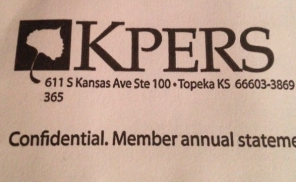KU Statehouse Wire Service
TOPEKA – The Kansas Senate introduced a bill last month that would affect Kansas Public Employees Retirement System (KPERS) retirees who return to work after retirement.
In short, House Bill 2268 would update some of the exemptions to the existing policy. Currently, for most newly retired individuals under KPERS, the most they can earn in one calendar year is $25,000.
“The purpose of this bill is to simplify things,” said Anne Sawyer, committee assistant to the House Committee on Financial Institutions and Pensions.
What is simplified is the exemptions to who could possibly earn more than $25,000.
Currently, when a retiree hits the $25,000 maximum, they can decide either to stop working for the rest of the year, or to stop receiving KPERS benefits. They also have to be retired from their current position for a minimum of 60 days before taking a new KPERS position.
According to Legislative Research Analyst Reed Holwegner, who specializes in retirement, this bill excludes the following people from facing penalties: those who take emergency vacancies, special education teachers, and those in hard-to-fill positions.
The bill also excludes those who retire at age 62 or older and are re-employed by a participating school district as well as private contractors and third-party employers.
KPERS exists to provide those who work in public service with benefits upon retirement. Those benefits are prefunded, and according to their online projections, the average, long-term return on investments is 7.75 percent. Currently, there are 151,962 active KPERS members. The majority of them, 84,000, are employed by public schools.
The bill has already gone through the Kansas House of Representatives, passing on a vote of 116-9. The Senate has since referred the bill to the Committee on Financial Institutions and Insurance.
Matt Ostrowski is a University of Kansas senior journalism major from Roselle, Illinois.

